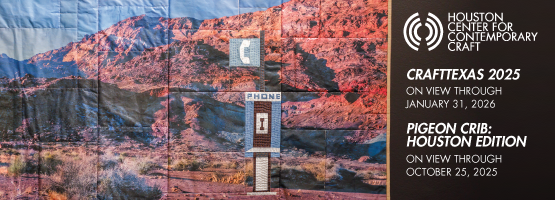Molly Searcy, voice actor and member of the Dallas Theater Center’s Diane and Hal Brierley Resident Acting Company, had the performance bug early. “I knew I wanted to do it before I knew that it was something I could do,” she says. “My older sister was involved in ballet, so I often went to the studio while she was there. When I was three, my mom took us to Houston Ballet to see Janie Parker and Martha Butler perform, which changed the game for me. I had a poster of Janie as Juliet in my room — I was obsessed. She was so utterly magical onstage. I loved the enchantment and beauty of ballet, telling stories through music, movement, and mime. It was everything to me. Still is.”
“Theater became an outlet for complicated emotions. Suddenly I had a community of people around me that seemingly didn’t want me to be anything other than myself. I didn’t have to fit into any mold or frame. I got to use my voice. I had found an eccentric collection of folks that helped me turn a corner in my recovery.”
Searcy decided to keep with theater, with much credit due to encouragement from Ms. Koern, and she continued to practice dance recreationally. Her struggles with eating disorders and coping mechanisms would continue, but healing and balance began to take priority. Searcy’s journey makes a strong case for the arts in schools: “Everyone needs that access, that place to find their community, their people. To have that place of expression. It can be so healing.”
She describes her approach to theater and acting, and every practice in general, as “quite serious,” almost to her detriment. “I want it to be the best it can possibly be,” Searcy explains. “I love this job so much and hold it in such high regard. It has to be honest. I want to tell the best story I can. I’ve always told myself: If people are paying to see you, you need to make it worth every dollar. I should be giving them everything.”
In 2017, she began a Masters in Acting at Southern Methodist University in Dallas. She graduated in May of 2020 and was offered a position in DTC’s acting company. 2020 was also, you might remember, the year the COVID-19 pandemic started.

1 ⁄7
Molly Searcy and Bradley Atuba in the Dallas Theater Center’s production of Cake Ladies. Photo by Karen Almond.

2 ⁄7
Molly Searcy in the Dallas Theater Center production of The Wolves. Photo by Karen Almond.

3⁄ 7
Molly Searcy in the recording booth. Photo courtesy of the artist.

4 ⁄7
Molly Searcy at a costume fitting for the Dallas Theater Center Production of The Odyssey. Costume and photo by Yvonne Miranda.

5 ⁄7
Jovane Caamaño, Molly Searcy and Dean Wray in the Undermain Theatre production of Red Chariot. Photo by Stephen Webster.

6 ⁄7
Molly Searcy in the Alley Theatre production of Enlightened. Photo by Melissa Taylor.

7 ⁄7
Molly Searcy in the SMU production of The Cherry Orchard. Photo by Bri Tobin.
“It felt uncertain. I was so unbelievably lucky to A) be a working actor and B) be a working actor IN THE PANDEMIC. I understand and appreciate what a rare blessing it was, and I am so grateful to DTC for the opportunity. I just always felt quite nervous, like the rug could be pulled out from under us at any time due to illness, lockdown, lack of funding, the potential end of the world, etc. It was uncharted waters. We all did the best we could with the information we had at the time.”
Theater naturally encourages close connection with the team of people working on each production. The pandemic only enhanced that phenomenon.
“It bonded us actors in a really unique way. We were each other’s pod. We tried to be accountable to each other because we were trusting each other with our health and safety. It was such a stressful time in the world and we were spending a lot of time together. We became quite close. You’ve seen great times and tough times but the constant is each other.”
Through it all, Searcy continued her voice acting work and branched out into commercial work for mega companies like Microsoft. Searcy loves the challenge of voice acting—the orchestration and mathematics involved, the charge to really know and convey the meaning of the text, especially when that text is highly technical. “Voice acting is a skill that requires flexibility and an understanding of genre, audience, and what’s going on in the world, archetypes, trends, and a clear understanding of your instrument. There are some brilliant, generous, unbelievably skilled human beings in the voice acting community. I feel very lucky to know them.”
After a two-year hiatus from stage work, Searcy will return to DTC this fall as Lucy in Dracula, a Comedy of Terrors, a farcical take on the classic tale. She’s looking forward to working on comedy, especially since she views laughter as medicine. Dracula runs Oct.11 through Nov. 3, if you want to dose yourself.
“Theater is a way of life and a way to heal. It has given me a place to deal with difficult things, a community to connect to and with, and to lean on, and for them to lean on me. When I need my own space from it, I have taken that time. And now I’m excited to come back.”
-EMILY HYNDS




